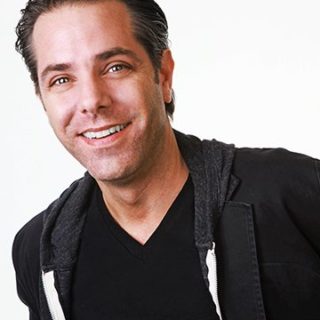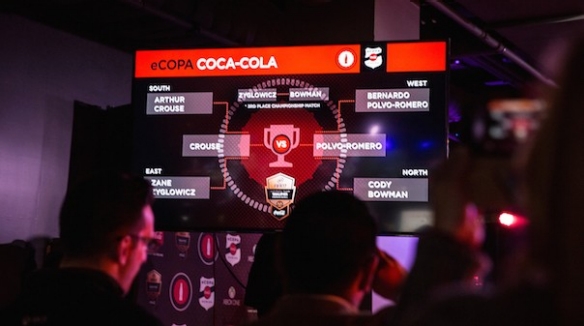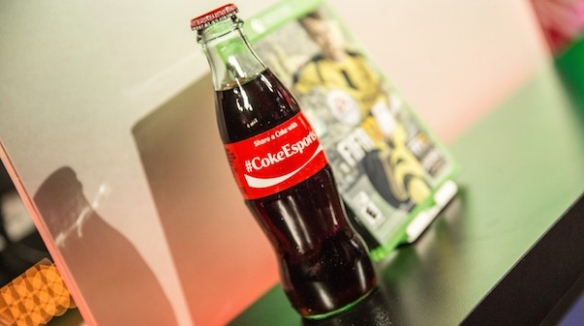As vice president of entertainment, ventures and strategic alliances for The Coca-Cola Company, Matt Wolf has expanded beyond the scope of his original role as the company’s global head of gaming. It was in 2013 that Wolf entered into eSports, making Coke the first non-endemic brand to target the emerging competitive gaming business.
Coke has worked with Riot Games to connect League of Legends fans with the brand, and has extended its eSports sponsorship with Electronic Arts and the FIFA video game franchise. Wolf explains the soft drink maker’s eSports strategy to [a]listdaily in this exclusive interview.

Why did Coke decide to engage with eSports fans at a time when few non-endemics were?
It’s a natural extension of our brand to celebrate fandom in a number of different forms. In this case, getting close to gamers seemed like natural evolution of that.
How does Coke, as a company, view eSports today?
We see it as an opportunity to reach the consumer in a way that is uniquely special, in that these consumers spend a lot of time in that specific genre. It’s another opportunity to reach a specific consumer set in a way we can’t otherwise. Also, it’s great for us in our ability to innovate our marketing communications and attach our brand to an emerging form of entertainment that we think has a lot of room to grow.
How has Coke been able to apply lessons learned from traditional sports to it eSports offerings?
We had a pretty good head-start heading into eSports because of our experience with traditional sports. The two aren’t that far apart. Our brand is more focused on being in the stands with fans. It’s about fandom and togetherness. We took that experience, and the way we approach traditional sports, and applied it to our eSports programming, but with a twist. We understand the eSports space and how that community interacts. While there’s a lot of crossover, it’s a completely different form of entertainment. And the viewing audience is hyper-connected through social media, another component we take seriously and integrate as seamlessly as possible with our marketing.
What has been the key to Coke’s success in eSports?
We took a fairly organic approach in. We didn’t rush our presence and push too hard at the beginning. It was an evolution. We were on a journey with the game makers, the stars and athletes of the sport, as well as the fans. That allowed us to evolve and grow over the last four years we’ve been in this space. That approach lends to some real authenticity both in how our brand is perceived by the viewing audience and the industry—and also in the way we’re realizing our brand in the space as we continue to build our relationship with the consumer.
What role has social media played in connecting with fans?
Gaming and social media are the same thing—inextricably linked. You can’t do one without the other. ESports broadcasts through a chat platform like Twitch or VOD through YouTube—they all run off social media. Tips and tricks are all happening online. And friends play these games online together, which also constitutes social spread and communication. You can’t have one without the other. When a brand like us comes in, we have a multipronged approach with marketing communication through both the eSports sector and social.

What role has the community played with activations like the cinema viewing parties and how has that grown?
Community is at the center of who we’re trying to reach and what we’re trying to achieve. We typically communicate a lot of eSports marketing work if it’s not at an activation site like Twitter or Facebook. But at the heart of that, it’s not effective unless we’ve generated a community around it. Our Twitter was the fastest growing CPG Twitter account in the world. One of the largest in the Coke company today. We use that community to generate awareness. We listen to what they want. We learn from what they like. It’s an amazing way to get real-time marketing that we can apply to future communications work.
Cinema viewing parties—these people can watch at home for free or with friends, and some do that. But the community, when they come together and experience a live event, it’s all about coming together as groups just like they would when watching [any other] live event in person. They can share that moment together. It’s about fandom and togetherness. We just can’t make that engine run without that community. That community is typically the hardcore eSports community, [and is the] most impassioned about the sport and that game. It’s all about celebration. It’s central to that community.
Matt Wolf is a speaker at the [a]list Summit. Learn everything you need to know to invest in today’s fastest-growing media channel—Competitive Gaming and eSports on 2.16.17 in Los Angeles. Go to alistsummit.com for more info.

